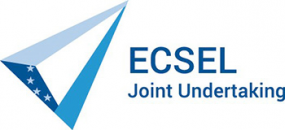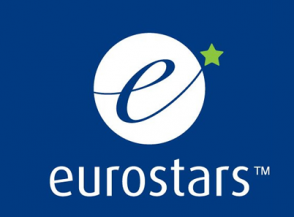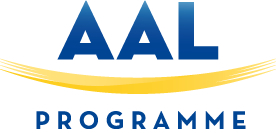AAL (Active and Assisted Living)
The programme aimed at improving the living conditions of elderly people through innovative ICT solutions, co-financed by the EU and the individual member states, is open to international consortia which first have to submit their proposal by the international deadline (usually spring) through the consortium leader on the AAL Office’s central participant portal
International evaluation:
Evaluators are selected from a list of international experts recommended by the member states based on the topic of the proposal. Coming from different (academic, university, ITC, business, end-user) professional backgrounds, evaluators assess project proposals against the criteria set out in the call documents.
Evaluation criteria:
- Excellence – goals aligned with programme objectives, relevance, professional soundness;
- Impact – the impact of the proposed solution for living conditions and the market; preliminary business plan;
- Implementation efficiency – work plan, methodology, involvement of end-users, composition and expertise of the consortium, project management.
The evaluation process
Proposals are discussed and ranked by a panel of independent experts based on the written evaluation reports. The panel strives to ensure sufficient thematic spread, the even representation of participants from the countries and the balanced use of financial commitment of member states. If a country has exhausted its budget allocated to the programme, and is unable to fund lower ranked but still eligible project proposals, the given consortium member can participate in the project without funding or can be replaced (reconfiguration) subject to the prescribed conditions.
Subsequently, the Hungarian partners participating in projects selected for funding based on the international evaluation and ranking submit their proposal to the NRDI Office presenting their tasks and costs undertaken in the international project to receive the national funding from the NRDI Fund without any further assessment of the professional content. The funding agreement with winning applicants is concluded by the NRDI Office both for the EU and the national funding in line with the international rules. Progress reports are evaluated at international level, while financial reports are evaluated by the NRDI Office as contracting party.
ECSEL (Electronic Components and Systems for European Leadership)

ECSEL
More information:
The ECSEL website ECSEL Joint Undertaking (ECSEL JU) participant Support for participation in the ECSEL joint EU initiative (2018-2.1.6-NEMZ_ECSEL)
In the framework of the programme promoting excellent European electronics components and systems and the development of embedded technologies, the EU and the individual member states jointly fund proposals submitted by international consortia. Consortium leaders first have to submit the joint proposal by the international submission deadline through the ECSEL Joint Undertaking (ECSEL JU) participant portal (link).
Step 1: submission of Project Outlines (spring)
- international evaluation: individual reports and preparation of draft consensus report
Step 2: submission of Full Project Proposals by consortia selected in the first step (autumn)
- international evaluation: preparation of the consensus report based on the reports of the individual expert evaluators (at least 4 by proposal), then formulation of the final evaluation report and the proposed ranking based on the results of the panel meeting
The Public Authority Board (PAB) members decide on the final ranking.
Evaluation criteria:
- Excellence –objectives and expected results, professional soundness and feasibility, degree of innovation;
- Impact – international market opportunities, utilisation, strengthening of innovation capacities, European economic effects (job creation, new investments, new products, technologies);
- Implementation efficiency – coherence of work plan, distribution of tasks and resources, representation of the elements of the value chain, consistency and expertise of participants, project management.
Subsequently, the Hungarian partners participating in projects selected for funding based on the international evaluation and ranking submit their proposal to the NRDI Office presenting their tasks and costs undertaken in the international project to receive the national funding from the NRDI Fund without any further assessment of the professional content.
Contracting:
- The funding agreement is concluded with the ECSEL Joint Undertaking at consortium level for the EU funding in line with the Horizon 2020 rules, and with the NRDI Office for the national contribution in line with the national rules.
Progress reports are evaluated at international level. Financial reports have to be submitted to the relevant contracting party, that is, to the NRDI Office in relation to the domestic funding.
EUROSTARS

EUROSTARS
More information:
The EUROSTARS website Support to Hungarian participation in the EUREKA programme (2018-2.1.3-EUREKA)
EUROSTARS is a joint programme co-funded by the European Commission and the participating member states with the aim of promoting R&D performing SME’s projects implemented in international cooperation. Project proposals are evaluated against formal and professional criteria at international level with the involvement of National Project Coordinators (NPC), the EUREKA Secretariat (ESE) and international experts.
The evaluation process is completed within 14 weeks from the submission deadline. After the Completeness and Eligibility Check of the proposals, NPCs report to the EUREKA Secretariat on the financial viability of the participating consortium members (Financial Viability Check).
This is followed by the evaluation of the professional content of proposals that met the formal requirements. In the first stage of the evaluation, 3 competent experts selected from the database of the EUREKA Secretariat evaluate the projects, and then the proposals recommended for funding by at least two experts are ranked by the Independent Evaluation Panel (IEP) comprising 10 independent experts.
The international ranking is based on three main evaluation criteria:
- Implementation
- Excellence
- Market impact.
Each proposal is given a score for each of the three main criteria, producing a maximum total score of 600 points. The proposal has to score at least 120 points on each criterion to reach the eligibility threshold. The funding agency of the participating member states (in Hungary: the NRDI Office) is required to take the international ranking into account for making its proposals for preliminary funding.
The Hungarian members of the consortia whose proposals were recommended for funding have to submit their proposals to the NRDI Office with the same content as the international proposal to receive the funding from the NRDI Fund. If the domestic proposal meets all criteria of the call, the NRDI Office adopts the funding decision and enters into the funding agreement with the beneficiary. The other consortium partners of the project receive the funding according to the rules of their respective countries. The NRDI Office concludes the funding agreement for both the EU and the national part of the funding in line with the national rules and the bilateral agreement concluded with the EUREKA/EUROSTARS Secretariat. Progress reports are evaluated at international and domestic level. Financial reports on both the EU and the domestic funding have to be submitted to the NRDI Office.
ERA-NET programmes
Introduced in the 6th framework programme (FP6), then successfully continued in FP7 and FP8 (Horizon 2020), the ERA-NET programme primarily aims to develop the coordination of nationally and regionally implemented public research programmes by organising national and regional research activities into a network, and mutually opening national and regional research programmes. ERA-NET Cofund under Horizon 2020 is a type of programme co-fund action designed to support public-public partnerships (P2Ps), including joint programming initiatives between Member States The ultimate goal of the programmes is to announce, finance and jointly manage international calls for proposals related to the specific area.
ERA-NET programmes comprise R&D programme owners (ministries, organisations funding research programmes) and programme managers (research councils and agencies implementing research programmes under the supervision of the programme owners).
The NRDI Office is currently involved in the following ERA-NET programmes as domestic co-funder:
- M-ERA.NET 2 – materials science and engineering
- E-Rare-3 – rare diseases research
- FLAG ERA II – research aimed at high-profile, interdisciplinary scientific and technological challenges in the framework of the H2020 Future and Emerging Technologies (FET) flagship initiative: graphene and brain research
- QuantERA – a new Horizon 2020 FET flagship initiative launched in 2016: quantum technology research
Proposals submitted for ERA-NET calls are assessed in two stages. Consortium leaders first have to submit a pre-proposal. If this receives positive evaluation, the consortium may proceed to submit the full proposal. Proposals are assessed by an international panel of independent experts in both stages.
Finally, based on the ranking proposed by the international experts, the representatives of the national funding agencies participating in the given ERA-NET joint action select the proposals for funding subject to the availability of funds. Subsequently, the participants of the winning consortia submit the proposal in their respective countries and sign the funding agreement with the national funding agency or ministry.







